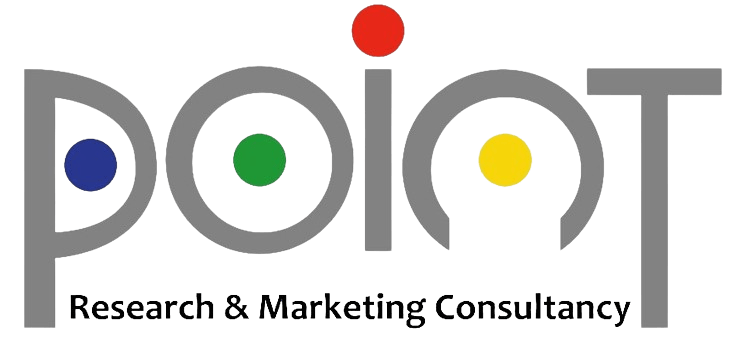
Market research is a vital component in the strategic planning of any business. It’s the process of gathering, analyzing, and interpreting information about a market, including information about the target market, customers, competitors, and the industry as a whole. But why is market research so crucial? Let’s dive in to explore its role and significance in the business world.
Understanding Market Research
Types of Market Research
Primary Market Research
Primary market research involves collecting data directly from the source. This could be through surveys, interviews, or experiments. The key advantage is that the data is specific to your needs and is up-to-date.
Secondary Market Research
Secondary market research, on the other hand, involves analyzing existing data that has been collected for other purposes. This can include reports, studies, and other data available publicly or from paid sources.
Qualitative vs. Quantitative Research
Market research can also be categorized into qualitative and quantitative research. Qualitative research focuses on understanding the underlying reasons and motivations, providing insights into the problem. Quantitative research, however, focuses on numerical data and statistics to identify patterns and trends.
The Role of Market Research in Business
Identifying Customer Needs
One of the primary roles of market research is to identify what customers need and want. By understanding customer preferences, businesses can tailor their products and services to meet these demands, ensuring greater customer satisfaction and loyalty.
Assessing Market Opportunities
Market research helps businesses identify new opportunities in the market. This could be a new customer segment, a geographical area, or a need that is not currently being met by competitors. Recognizing these opportunities early can give businesses a competitive edge.
Reducing Business Risks
Every business decision carries some risk. Market research helps in reducing these risks by providing data-driven insights. Whether launching a new product or entering a new market, having accurate information reduces the uncertainty involved in these decisions.
Informing Product Development
Product development is an area where market research plays a crucial role. By understanding customer needs and market gaps, businesses can develop products that are more likely to succeed. This involves everything from conceptualizing the product to testing prototypes and final products.
Enhancing Marketing Strategies
Effective marketing is essential for business success. Market research provides insights into the most effective ways to reach and engage with customers. This includes understanding the best channels for communication, the type of messaging that resonates with the audience, and the timing of marketing activities.
Market Research Methods
Surveys and Questionnaires
Surveys and questionnaires are common methods of collecting data from a large number of respondents. They are versatile and can be used to gather information on a wide range of topics.
Interviews
Interviews provide in-depth information and are often used to explore complex issues. They can be conducted one-on-one or in groups, and they allow for follow-up questions to gain deeper insights.
Focus Groups
Focus groups involve a small number of people who discuss a topic under the guidance of a moderator. This method is useful for exploring ideas and gaining a deeper understanding of consumer perceptions.
Observational Research
Observational research involves watching how consumers behave in a natural setting. This can provide insights into how products are used and the challenges customers face.
Experiments and Field Trials
Experiments and field trials involve testing hypotheses in real-world settings. This method is useful for understanding the effectiveness of new products or marketing strategies before a full-scale launch.
Steps in Conducting Market Research
Defining the Problem
The first step in market research is to clearly define the problem or question you need to answer. This ensures that the research is focused and relevant.
Developing a Research Plan
Next, you need to develop a plan for how the research will be conducted. This includes choosing the methods, selecting the sample, and determining the timeline and budget.
Collecting Data
Data collection involves gathering the information needed to answer the research questions. This can be done through various methods, such as surveys, interviews, and observations.
Analyzing Data
Once the data is collected, it needs to be analyzed to identify patterns and insights. This involves using statistical tools and techniques to make sense of the data.
Reporting Findings
The final step is to report the findings. This involves presenting the data in a way that is easy to understand and provides actionable insights for decision-makers.
Tools and Techniques in Market Research
SWOT Analysis
SWOT analysis is a tool used to identify the strengths, weaknesses, opportunities, and threats related to a business or project. It helps in strategic planning and decision-making.
PEST Analysis
PEST analysis examines the external factors that can impact a business. These factors include political, economic, social, and technological influences.
Competitive Analysis
Competitive analysis involves evaluating the strengths and weaknesses of competitors. This helps businesses understand their position in the market and identify areas for improvement.
Data Analytics Tools
Modern market research often involves using advanced data analytics tools to process and analyze large datasets. These tools can provide deeper insights and help in making more informed decisions.
Challenges in Market Research
Dealing with Biased Information
One of the challenges in market research is ensuring that the information collected is unbiased and accurate. This requires careful design of research methods and tools.
Ensuring Data Accuracy
Accurate data is crucial for reliable insights. Ensuring data accuracy involves using reliable sources and methods, as well as verifying the information collected.
Managing Costs
Market research can be expensive, especially for small businesses. Managing costs involves choosing the most cost-effective methods and tools for conducting research.
Staying Up-to-Date with Trends
The market is constantly changing, and staying up-to-date with the latest trends is a challenge. This requires continuous monitoring and adapting research methods as needed.
The Future of Market Research
Role of Technology
Technology is playing an increasingly important role in market research. From advanced data analytics tools to artificial intelligence, technology is making it easier to collect and analyze data.
Emerging Trends
Emerging trends in market research include the use of social media analytics, mobile research, and online communities. These trends are providing new ways to gather insights and engage with customers.
Conclusion
Market research is an essential tool for businesses of all sizes. It provides valuable insights that help in making informed decisions, reducing risks, and identifying new opportunities. By understanding the role of market research and using the right methods and tools, businesses can stay ahead of the competition and meet the needs of their customers more effectively.
FAQs
What are the main benefits of market research?
Market research helps businesses understand customer needs, identify market opportunities, reduce risks, and enhance marketing strategies. It provides data-driven insights that support decision-making and strategic planning.
How often should businesses conduct market research?
The frequency of market research depends on the industry and the specific needs of the business. However, it’s generally advisable to conduct market research regularly to stay updated with market trends and customer preferences.
Can small businesses afford market research?
Yes, small businesses can afford market research by using cost-effective methods such as online surveys, free data sources, and leveraging social media analytics. Additionally, focusing on specific, high-impact areas can provide valuable insights without significant expenses.
What are some common mistakes in market research?
Common mistakes include not defining the research objectives clearly, using biased samples, ignoring secondary data, and failing to act on the findings. Ensuring a well-structured research plan and accurate data collection methods can help avoid these pitfalls.
How does market research impact customer satisfaction?
Market research impacts customer satisfaction by ensuring that products and services meet customer needs and preferences. By understanding what customers want and addressing their pain points, businesses can improve their offerings and build stronger customer relationships.






